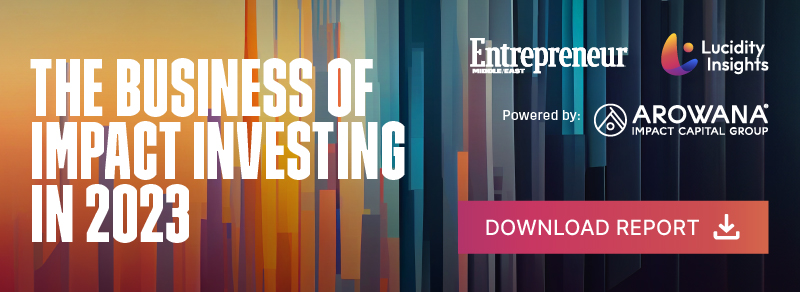Redefining Capital’s Purpose: The Evolution of Impact Investing
12 December 2023•
Kevin Chin, Founder & CEO of Arowana
As the world grapples with interconnected and complex issues including climate change, environmental degradation and social inequality, impact investing has rapidly emerged from a niche corner of the investment world to become increasingly mainstream.
The fundamental objective of impact investing is to generate positive social and environmental impact alongside financial returns. It is becoming a powerful movement seeking to transform how capital is mobilized to solve our most complex and pressing socio-economic and environmental issues.
Impact investing is the umbrella term that encompasses investment being directed towards companies involved in climate change and the energy transition, as well as other areas which are best articulated by the 17 United Nations Sustainable Development Goals (SDGs).
Redefining the Purpose of Capital
In 1970, the economist, Milton Friedman wrote a New York Times essay titled “A Friedman Doctrine: The Social Responsibility of Business is to Increase Its Profits.” The theory argues that the main responsibility of a business is to maximize returns to shareholders on their invested capital. For the ensuing 50 years, this shareholder value primacy became the dominant purpose of almost all corporations globally.
This is now changing, and history will likely point to Larry Fink’s 2019 letter to CEOs as the “sliding doors” moment when shareholder value primacy at all costs started to pivot to purpose driven stakeholder primacy. Fink’s seminal letter urged CEOs to carefully consider their company’s social license to operate by articulating their company’s purpose and how it creates value not just for shareholders but all stakeholders. This includes not just shareholders but also employees, customers, suppliers and the community at large. In having a purpose driven and more inclusive stakeholder value approach, Fink argued that this would lead to more sustainable, enduring and indeed, profitable corporations.
However, before Fink’s letter, there had been simmering activity at a global level challenging the shareholder value maximisation mantra. The term “impact investing” emerged from the family office circuit around the time of the Global Financial Crisis, with thought leading family offices expressing concerns about the sustainability of corporate practices. In the aftermath of the GFC, the Occupy Wall Street movement in 2011 amplified the global spotlight on increasing social inequality and the role of large corporations in society.
A bellwether of the rise of a more inclusive impact driven conscious capitalism is the increasing prevalence of B Corporations. Founded in 2006, B Lab, the governing body of B Corp, is struggling with torrid growth in demand amongst companies seeking to become B Corps. I first learned about B Corporations in 2016, when there was just over 1,800 B Corps globally. Now at the time of writing, there are over 7,300 (representing 400% growth in 7 years).
When Arowana received our B Corp accreditation in 2018, people would look quizzically at the B symbol we were sporting, whereas today, it is seen increasingly as a badge of honour with B Corporations anecdotally attracting a valuation premia (over their non-B Corp peers). What is important is that B Corporation is not a pledge – it is a legal and constitutional commitment of the enterprise to operate to deliver on a triple bottom line, being people, profit and planet. In other words, stakeholder value.
Traditional investment approaches over the last 50 years have historically focused almost solely on financial returns, often with disregard for the expense of broader societal and environmental considerations.
However, the tide is turning with society at large demanding that corporations need to maintain a social licence to operate and institutional investors who manage their money are taking note of this and recognizing the imperative to align their capital with the pursuit of positive impact. Impact investing represents a fundamental redefinition of the purpose of capital, emphasizing the need to create sustainable value for society and the planet as equally important objectives alongside financial gains.
This shift reflects a growing acknowledgment that financial success should not come at the cost of exacerbating social inequalities or degrading the natural environment, but rather should be a driver of sustainable progress.
Impact Investing enables Sustainable Economic Growth and Prosperity

At its core, impact investing is deeply rooted in the belief that economic prosperity and social progress are fundamentally interconnected. By directing capital toward businesses and projects that prioritize inclusive growth, equitable opportunities, and community empowerment, impact investors can help address systemic barriers and drive positive transformation at the grassroots level.
Impact investing has the potential to uplift marginalized communities, support small and growing businesses, and foster economic resilience in regions and countries that have historically been underserved by traditional financial markets.
Through targeted investments in areas such as affordable housing, microfinance, and sustainable agriculture, impact investors can contribute to the creation of vibrant, inclusive economies where prosperity is shared more equitably.


%2Fuploads%2Fimpact-investing%2Fcover19.jpg&w=3840&q=75)